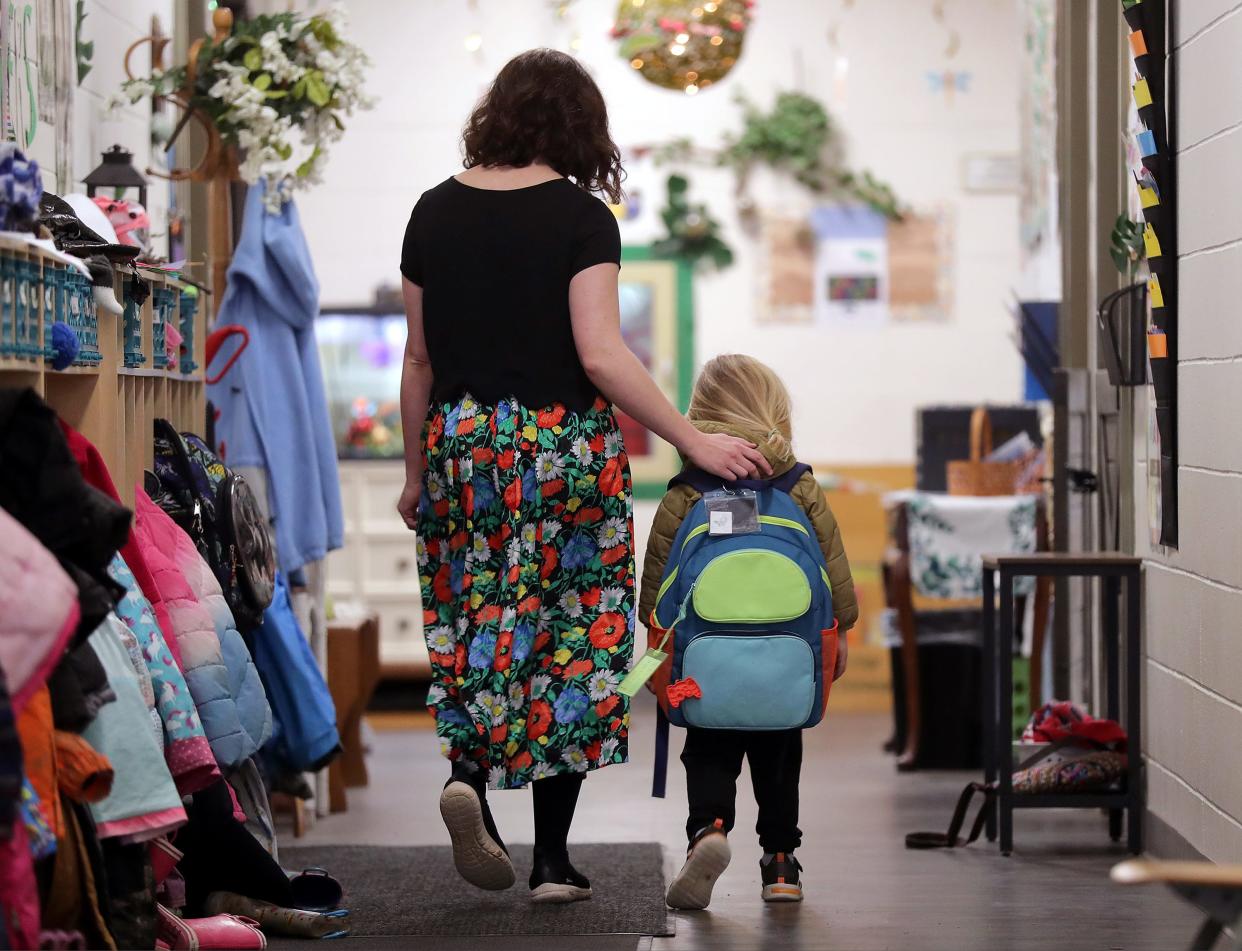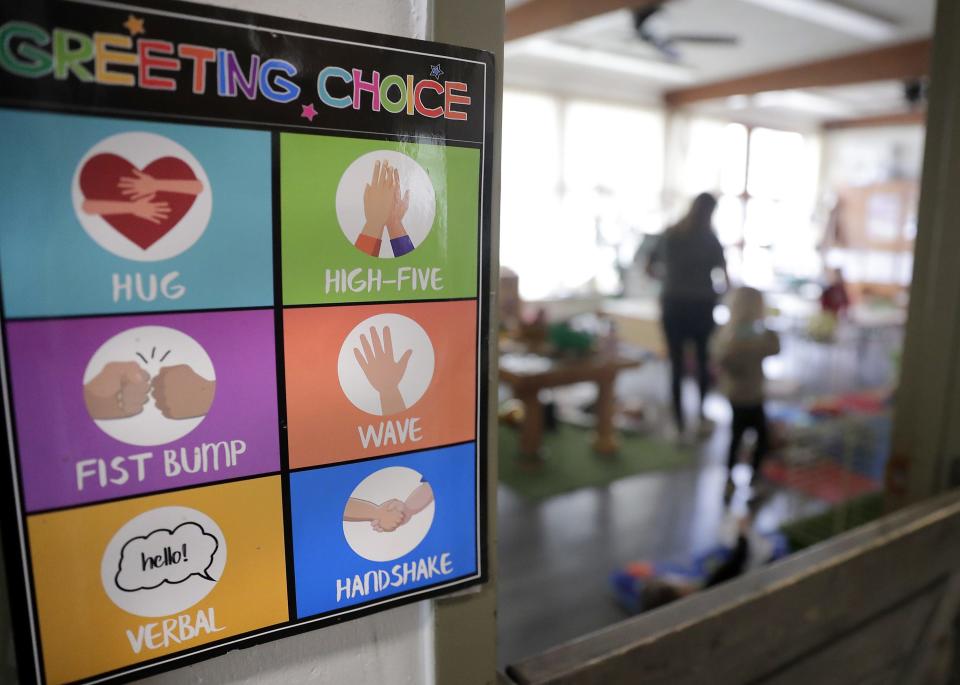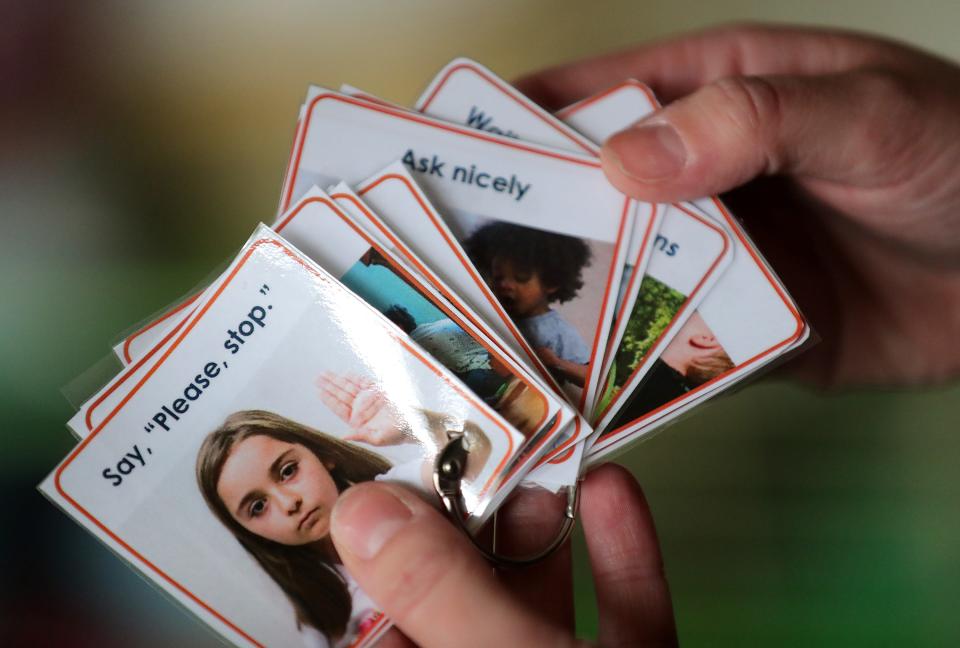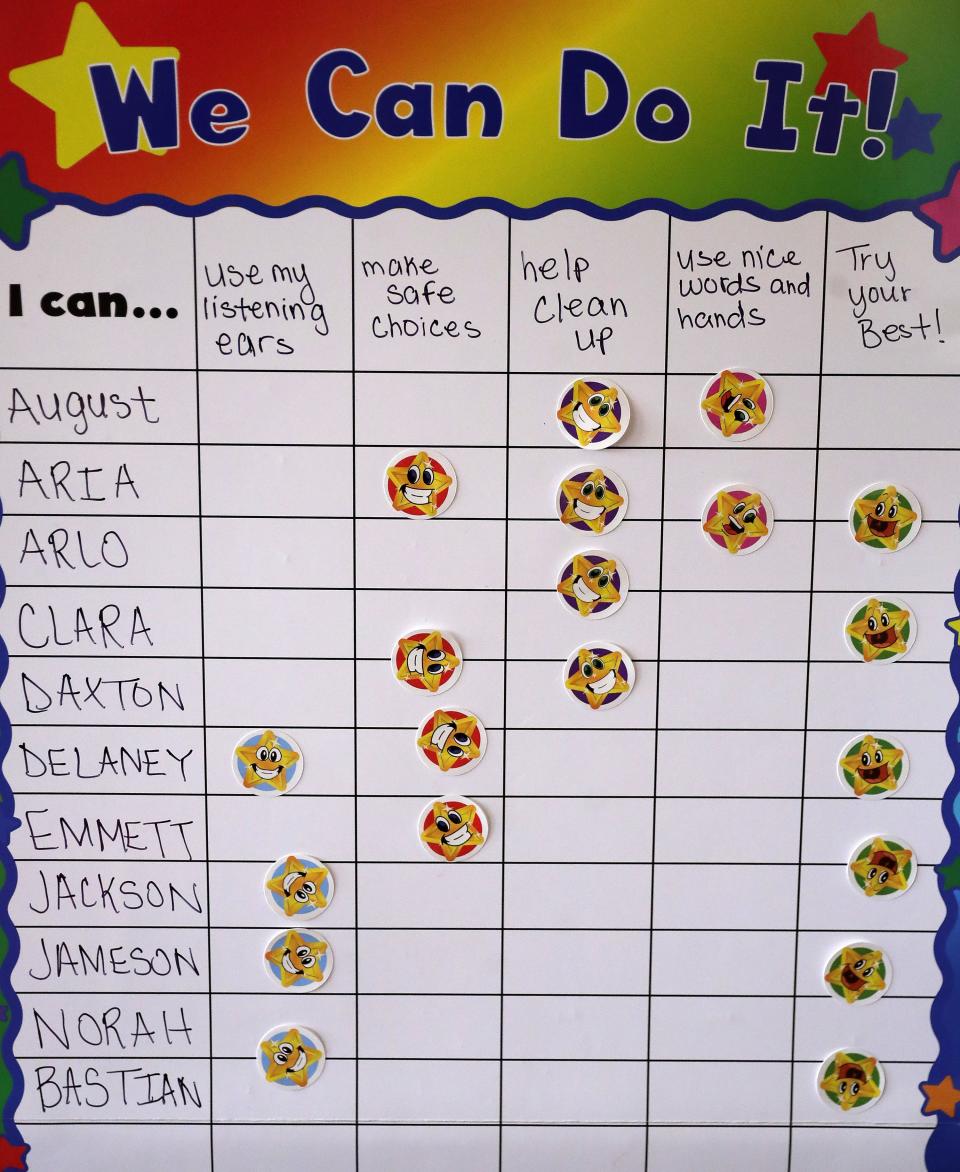Child care expulsions are more common than you'd think, and they might be rising. Here's what a Kimberly nonprofit is doing about it

Swearing. Hitting. Knocking over bookshelves. Throwing things. Violent threats like “I am going to kill you.”
While alarming, young children are exhibiting these dangerous behaviors in child care programs. Such behaviors are the leading cause of early childhood expulsions in Wisconsin — and they're nothing new. A 2005 study showed children in state funded prekindergarten programs, including child care programs, are more likely to be expelled than students in K-12 schools.
Roughly two years ago, Child Care Resource & Referral Inc. in Kimberly noticed an uptick in child care programs reaching out for help.
“We have many programs that call us and say, ‘You are my last resort. If you can’t help us, this child can’t stay here,’” said Candy Hall, CCR&R Inc.’s executive director.
Given the depth of those struggles — for the children, families and programs — CCR&R knew it had to do something. So last year it created an early childhood support coordinator position to help programs as they navigate challenging behaviors. The goal? To reduce area early childhood expulsions.
Child care programs say its working.
“It’s not fair to do an expulsion just because of those types of behaviors, and that is why we’re really appreciative of (the early childhood support coordinator's) services,” said Carissa Tikalsky, the program director of Lake Edge Learning Center in Neenah. “I feel like it definitely helps reduce the rate of expulsions in our center.”
As the early childhood support coordinator, experienced teacher Emily Thiel helps child care programs in a variety of other ways, too, including assisting with policy development and mentoring teachers. As expected with the need being so great, the majority of Thiel’s time is spent consulting with programs about difficult behaviors, Hall said.
More: Wisconsin preschoolers are 5 times more likely to be expelled than K-12 students, but why?
More: How Wisconsin educators are changing the way they teach to help kids' mental health
Reasons behind challenging behaviors can be complex

According to a 2021 survey, more than half of Wisconsin early care and education professionals reported an increase in challenging behaviors.
There can be myriad reasons why a child is struggling with behavioral issues. On the surface, it might look like a child is "out to get" a teacher or peer, that they are feeding an urge to deliberately cause harm. But it's much more complex, Thiel explained.
The pandemic may have something to do with the recent uptick in challenging behaviors, Hall and Thiel said. When schools and child care programs were shut down — if not entirely, off and on when illness struck — young children were deprived of normal opportunities to build social and emotional connections. Many parents and guardians juggled working full time from home while simultaneously tending to their children. Neither scenario fostered the ideal, stable environment conducive to developing these skills in young ones.
Aside from fallout from the pandemic, physical or mental health conditions can also complicate things. Children can “act out of trauma.” It can also come down to child care being many children’s first experience in a large group away from home, and they are seeking the feeling of security that comes with a teacher’s one-on-one attention, Thiel said.
Often it comes down to social-emotional concerns.
Early childhood support coordinator re-emphasizes importance of social-emotional learning
One tenet of the early childhood profession is “behavior is a form of communication.”
It takes teaching for children to develop social-emotional skills like how to express their needs and feelings in healthy ways, to share, to take turns, to problem solve, to consider others’ feelings and more; they aren’t born with these skills. Without these skills, or while learning them, children may struggle with behavior challenges.
Take a case Thiel recently worked on with Lake Edge Learning Center in Neenah, for example. One child had a hard time with transitions — something not out of the ordinary for young children getting used to new routines. He’d get overwhelmed and have a hard time expressing himself. Frustration arose when others didn’t understand what he was trying to communicate. In not knowing how to regulate that emotion, he started unsafe behaviors like hitting and kicking his teacher, throwing things and trying to run away.
“You can tell that this child doesn’t want to feel this way; you can tell that immediately,” said Tikalsky, the center’s program director.
When Thiel consults on behavioral challenges, her first step is to observe the child in the classroom. She talks with the child care program about what interventions they’ve tried, and what works and what doesn’t. Then, she and the program come up with new strategies, sometimes enlisting the help of the other early childhood experts at CCR&R, and then work together to implement them. When necessary, these strategies are tweaked.
In the case of the child at Lake Edge Learning Center, Thiel recommended showing the child visuals to solidify what behavior is expected and safe. She also used stories to help the child learn social skills and self-regulation. Thiel gave his classroom suggestions to improve their “safe space,” a spot where children can practice self-regulation that’s calming, is away from the rest of the children in the classroom.
With Thiel’s help, the child is much better at communicating his feelings in a healthy way, and de-escalating when he gets overwhelmed. The center was able to share tips with the family to build on these skills at home, Tikalsky said.
Thiel said her associate's degree in early childhood education, experience as a child care teacher and parent, and trainings in social-emotional competence like Conscious Discipline and the Pyramid Model allow her to dive deep into such interventions.
“We talk so much about 2-, 3-, and 4-year-olds learning their ABC’s and 1-2-3’s, and all of that is great, but none of that does any good if they can’t sit still or regulate their emotions,” Hall said. “So it has to start at the bottom, and that’s where Emily comes in.”
Related: What is 'Conscious Discipline,' and how can it help students?
Supporting child care programs, supporting families

Suspensions and expulsions from child care can have difficult outcomes for children and their families; some effects can extend well beyond the early years.
When a child is suspended or expelled, their family is left to scramble to find child care elsewhere — and given the expansive waitlists at many Fox Valley programs, this is no easy feat.
“It’s always tough on the families because if parents don’t have care, then they can’t work, and then it just goes on and on from there,” Thiel said. “If they can’t work, they can’t provide food, and obviously that’s not good, either.”
Thiel explained young children thrive on safety and security; bouncing from one child care to the next is the antithesis of this. It could even affect their future outcomes, such as academic success.
By providing a “fresh set of eyes,” Thiel hopes to quell challenging behaviors before a suspension or expulsion becomes necessary. In the heat of the moment — being punched, yelled at or dodging toys thrown by a child — it can be hard for any adult to keep their composure, let alone problem solve.

And considering the average wage of a Wisconsin child care provider was $12.66 per hour in 2022 and many programs cannot offer benefits, there’s not much incentive to stay.
“Everybody is short staffed, overworked and overstressed,” Thiel said. “I think positions like mine — where I can go in, be the calm that they need and really put the emotions aside to think through it — definitely helps teachers and and even directors decompress.”
More: Pandemic, aftermath add more stress to Wisconsin early childhood teachers' mental health
By extension, supporting child care programs also bolsters children and families. Not only does Thiel help to keep children in care, she also points families to a plethora of resources in the community, including help with developmental concerns, questions about the state child care subsidy program and assistance for those experiencing trauma. Once a week, Thiel visits LEAVEN Fox Cities to help families in finding and affording child care.
“What Emily does helps the children, but just as importantly, it helps teachers learn skills, increase their toolbox and essentially retain them in the field of early childhood,” Hall said.
The early childhood support coordinator serves Outagamie, Calumet, Waupaca, Winnebago and Green Lake counties. For more information, call CCR&R Inc. at 920-886-1211.
Related: These Wisconsin programs are cracking the code on lowering preschool suspensions, expulsions
More: Where to find help for young child behavioral challenges in Wisconsin
Madison Lammert covers child care and early education across Wisconsin as a Report for America corps member based at The Appleton Post-Crescent. To contact her, email mlammert@gannett.com or call 920-993-7108. Please consider supporting journalism that informs our democracy with a tax-deductible gift to Report for America by visiting postcrescent.com/RFA.
This article originally appeared on Appleton Post-Crescent: Kimberly nonprofit steps in to reduce child care expulsions

